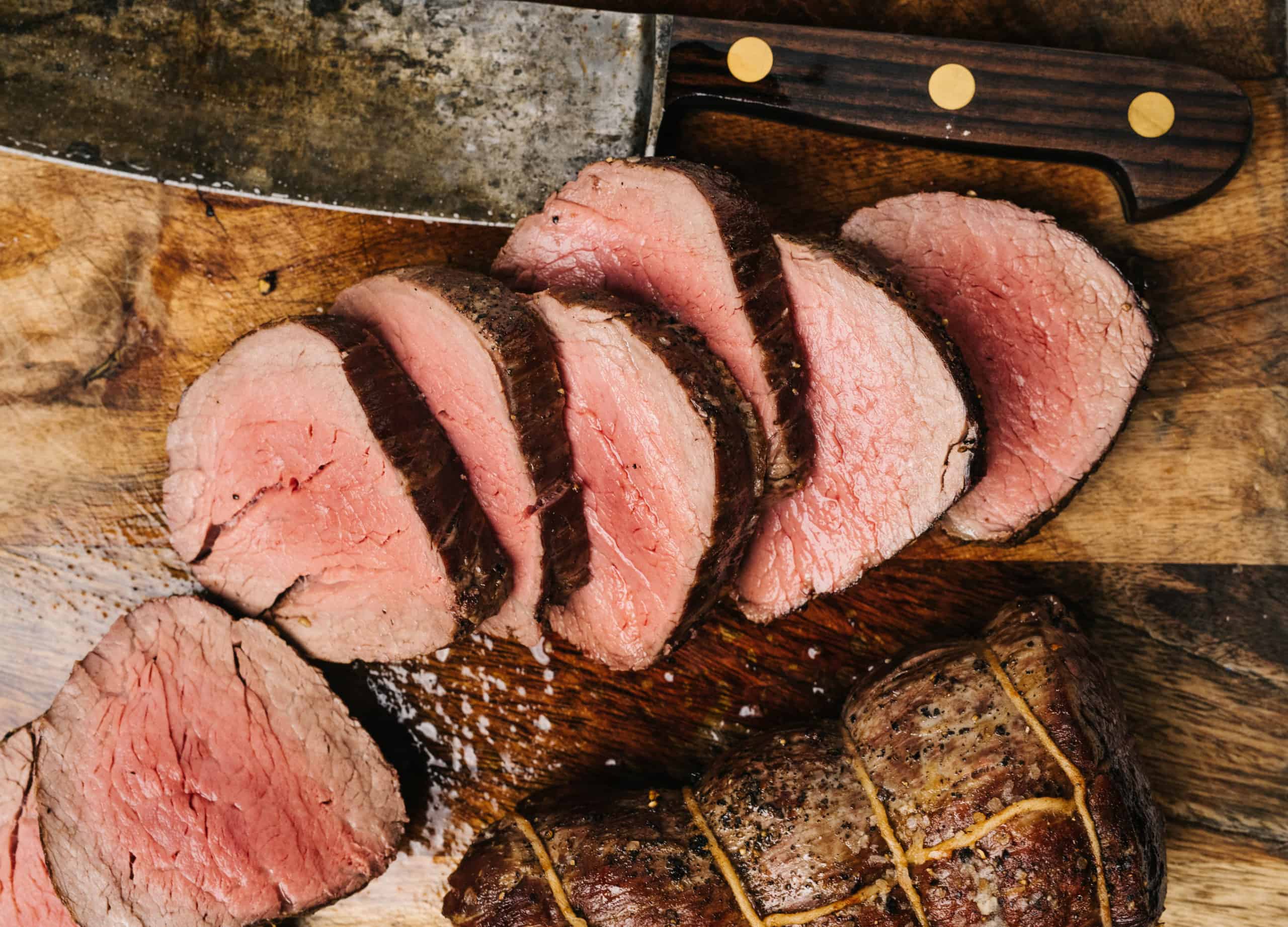- It’s possible to lose weight on the keto diet, but it’s not guaranteed.
- Eating nutrient-dense foods and maintaining a calorie deficit can help with keto weight loss.
- Keto comes with some health risks, so talk to a healthcare professional about whether it’s right for you.
Chances are, you’ve heard of someone who cut out carbs on the keto diet and lost a bunch of weight. That’s not a fluke—studies show keto works for short-term weight loss.
However, you may have questions like: Is keto safe? What about long-term weight loss? We spoke to Emily Rivelli, MA, a registered nutrition and dietetics technician, and board certified health and wellness coach, to understand more.
Check out her thoughts and get practical tips for keto weight loss below.
Note: Consult your health care provider before making any dietary changes.
This is Chapter 3 of Noom's Guide to the Keto Diet:
- Empowering Your Wellness Journey: Exciting Updates to Noom
- The Noom Kitchen Cookbook: Healthy Living Secrets
- What is the ketogenic diet? Everything you need to know
- The ultimate keto food list
- Keto weight loss: FAQs and practical tips
- Not losing weight on keto? Here are 9 reasons why
- Vegetarian keto for beginners
- 67 easy, healthy keto recipes for weight loss
- 10 low-carb keto drinks for worry-free hydration
- Keto for women: Benefits, risks, and practical tips
Can keto help you lose weight?
Yes. Studies suggest that following a keto diet can result in weight loss in the short term, but researchers don’t know how many people sustain that weight loss for more than a year.
On the keto diet, you drastically cut your carbohydrate intake while increasing your fat intake. The goal is to reach ketosis, a metabolic state where your body burns fat for energy instead of carbs. (By the way, “keto” is short for ketogenic.)
“Sustainability is a very large hurdle when it comes to keto,” says Rivelli. “Limiting carbohydrate intake is hard!”
And like other restrictive diets, you may gain back the weight you’ve lost (or more) when you stop.
Carbohydrates aren’t just found in bread and pasta. Most fruits and even some vegetables are off limits on keto because of their carb content.
That means if you do stay on the keto diet long term, you could be at risk for nutrient deficiencies and other health problems.
How does keto weight loss work?
There are several theories for why keto often results in weight loss. One is that keto causes weight loss because of a change in what your body uses for fuel.
Your body’s preferred fuel is glycogen (or sugar) from carbs. On a keto diet, you don’t get as many carbs, and once your body burns through the available glycogen, it turns to fat for energy. So your body is using a lot of the calories you’re eating right away.
On a standard diet, by contrast, your body tends to store calories for later use, Rivelli says.
Another theory is the way ketosis affects the levels of ghrelin (the “hunger hormone”) in your body.
Ghrelin levels increase during non-ketogenic weight loss, which stimulates your appetite. But ketosis suppresses that increase in ghrelin, so you’re less likely to feel hungry.
Rivelli says the shift in macronutrient intake with keto could also lead to a natural calorie deficit, resulting in weight loss. That’s because consuming more healthy fats and protein can increase how full you feel.
How to lose weight on keto: 6 tips for beginners
Weight loss can be challenging, whether you’re doing keto or not. And “there’s a lot of conflicting info out there, and not all of it is reputable or safe,” Rivelli says.
Increase your chances of losing weight safely and sustainably by applying some of the basic principles of weight loss in addition to following the rules of keto.
1. Get into ketosis—and stay there
To get into a state of ketosis, carbohydrates should make up 5 to 10% of your daily calorie allotment, 10 to 20% should come from protein, and the other 70 to 80% from fat.
For most people, that means less than 50 grams of carbs per day. (For reference, there are 27 grams of carbs in a banana.)
At Noom, we don’t encourage eliminating entire food groups. But if you choose to follow a strict keto diet, you’ll need to avoid:
- Bread, cereal, pasta, rice, and other processed baked goods like cookies and cakes.
- Sugar, honey, and syrups.
- Beans and legumes.
- Sugary drinks like juices, soda, and alcoholic beverages.
- High-carb fruits like bananas, apples, mangoes, and grapes.
- High-carb vegetables like potatoes, yams, beets, peas, and corn.
2. Understand the emotional side of eating
We know that losing weight on keto (or while following any eating strategy) isn’t as simple as changing your diet.
For long-term weight loss, it’s about understanding why you make less-healthy choices and building new, positive habits that you can sustain.
Do you ever crave something sweet at the end of a rough day? There’s a good reason for that. Eating carbohydrates increases your body’s production of serotonin (sometimes called the “happy hormone”), a neurotransmitter responsible for regulating mood.
Try going for a bike ride, gardening, or even listening to your favorite music instead. (This is good practice for anyone.)
If you do finish off a sleeve of cookies, it will probably knock you out of ketosis. Don’t worry—it’s not the end of the world.
We’re only human. If you want to stick with the keto diet for weight loss, enjoy the cookies and get back on track tomorrow.
3. Calculate your calorie deficit
Cutting carbs alone isn’t likely to help you reach your weight loss goals.
“Ketosis alone will not result in significant weight loss,” says Rivelli. “If you are looking to lose weight, you need to be in a caloric deficit.”
A calorie deficit is when you burn more calories than you consume.
For example, if your body burns 2,000 calories per day, but you only take in 1,500 calories, that’s a calorie deficit of 500. Sustaining this deficit can result in weight loss.
For some people, following a keto diet can create a natural calorie deficit. But it’s also easy to take in even more calories on keto since fat has twice as many calories per gram as carbohydrates.
4. Track what you eat
How do you know how many calories you’re consuming? With food tracking.
With a food logging app like Noom, you can input a few data points (like your current weight, age, and sex), and it will calculate your suggested daily calorie range. Then, as you log your meals, the app automatically tracks how many calories you’ve consumed.
Food tracking can benefit anyone—whether you’re following a keto diet or not—by helping you stay within your caloric range and increasing mindfulness around your eating habits.
5. Eat nutrient-dense food
Keto isn’t just about cutting carbs—what you replace them with is also important.
You’ll find lots of processed, low-carb, “keto-approved” foods at the grocery store, but they’re not necessarily healthy.
By eating nutritious, whole foods—like eggs, keto-friendly vegetables, and satiating healthy fats and lean proteins—you’ll give your body the nutrients it needs, and you’ll be less likely to feel hungry and overeat.
6. Find a support system
Whether you’re doing keto or just counting calories, weight loss is challenging. (Does that sentence win the understatement of the year award?)
That’s why it’s helpful to surround yourself with people who will encourage you and hold you accountable for your goals.
Find a friend who will try keto with you, or even just serve as an accountability buddy. And make sure your family and friends understand what you’re trying to accomplish.
You can even find communities of keto dieters online (on Reddit, for example) who will share keto recipes, celebrate your wins, and support you on tough days.
How much weight can you lose on keto?
Keto weight loss varies from person to person, but if you’re following the diet and eating in a calorie deficit, you could lose weight at a rate of 1 to 2 pounds per week (what the U.S. Centers for Disease Control and Preventuion, or CDC, considers safe).
A few studies demonstrate how much results can vary:
In one randomized controlled trial among obese people, the average weight loss after two months was 30 pounds.
Another study of 53 women found the average weight loss over six months on the keto diet was 19 pounds.
In another study of 83 people with BMIs over 35 following the keto diet, the average weight loss after 24 weeks was 32 pounds.
What is the average weight loss on keto?
There is no “average” keto weight loss. How much weight you lose depends on a number of factors, like:
- Your current weight and body fat percentage.
- Whether you maintain a calorie deficit.
- How long you follow the diet.
In other words: Everyone’s experience is unique to them.
How long does it take to lose weight on keto?
“Some people experience rapid weight loss of up to 6 to 10 pounds in the first two weeks, but it’s different for everyone,” says Rivelli.
You will likely lose several pounds within the first week of starting keto—much of which will be water weight.
That’s because the glycogen stored in your body is bound with water at a ratio of 1:3. As your body burns through those carbs in the first few days of starting the keto diet, you lose that water through sweat and going to the bathroom.
How much weight can you lose in a month on keto?
It’s not uncommon to lose 10 pounds or more during your first month of keto, says Rivelli. But keep in mind that losing weight quickly isn’t always healthy or sustainable, and 10 pounds in a month is at the upper range of safe weight loss.
And remember: Results vary from person to person depending on factors like starting weight and food choices.
Eating too many carbs or even too much protein can take you out of ketosis and prevent you from losing weight.
What to know before starting keto
Going keto comes with some risks, including fatigue, constipation, and kidney and liver problems.
“And a large body of evidence shows that a diet high in saturated fat is often associated with an increased risk of developing cardiovascular complications,” says Rivelli.
Limiting carbohydrates—especially those from fruit and vegetable sources—can put you at risk of developing vitamin and nutrient deficiencies, Rivelli says. Especially vitamins A, C, K, and folate.
It’s important to check in with your healthcare provider or a registered dietitian to make sure the keto diet is a good fit for you.
If you decide to give the keto diet a try, Noom Weight can help. Our psychology-based approach, community, and available coaching can help you push through carb cravings and stay on track. (And, when you go off track, provide the support you need to keep going.)





